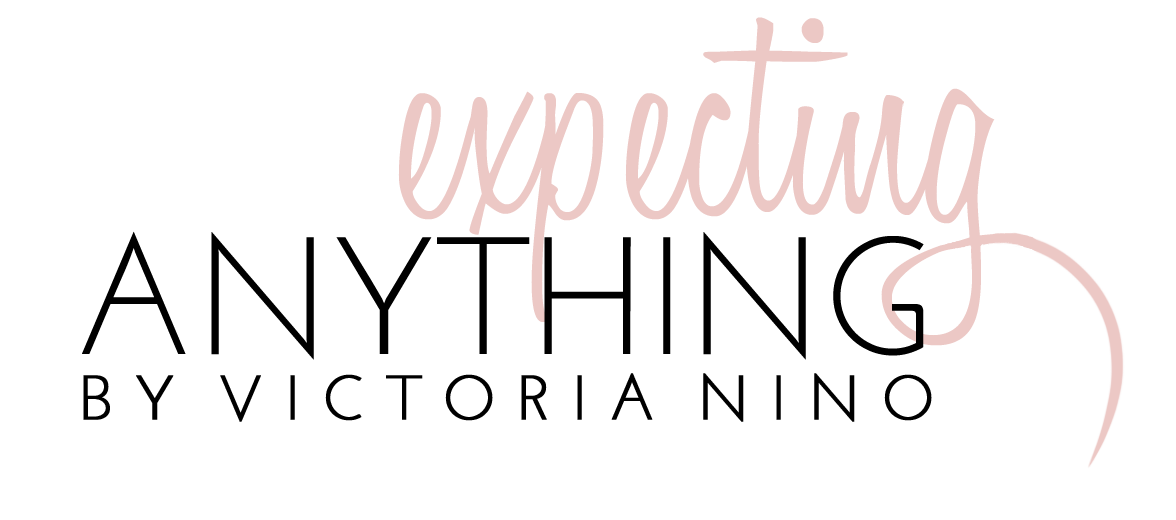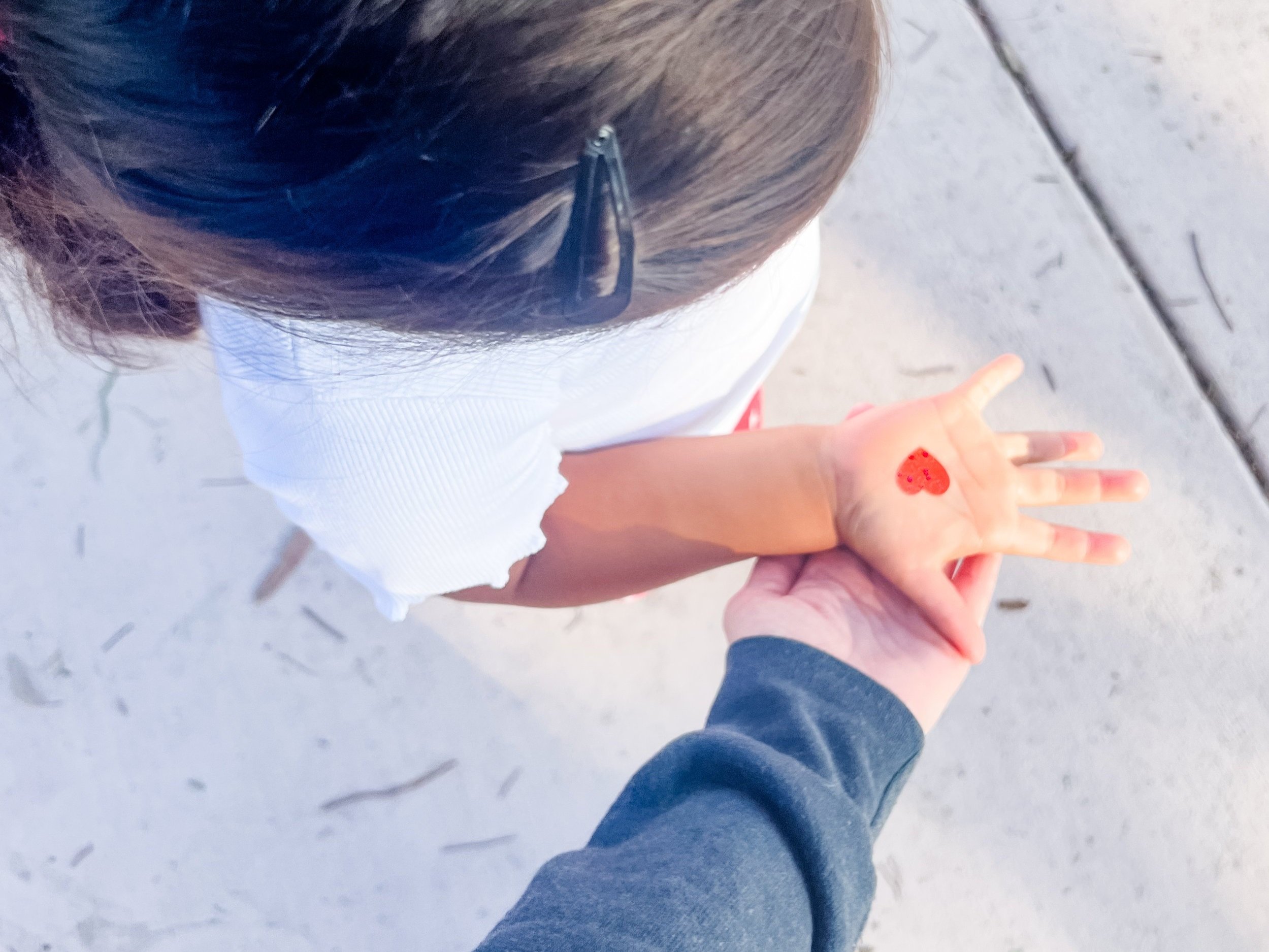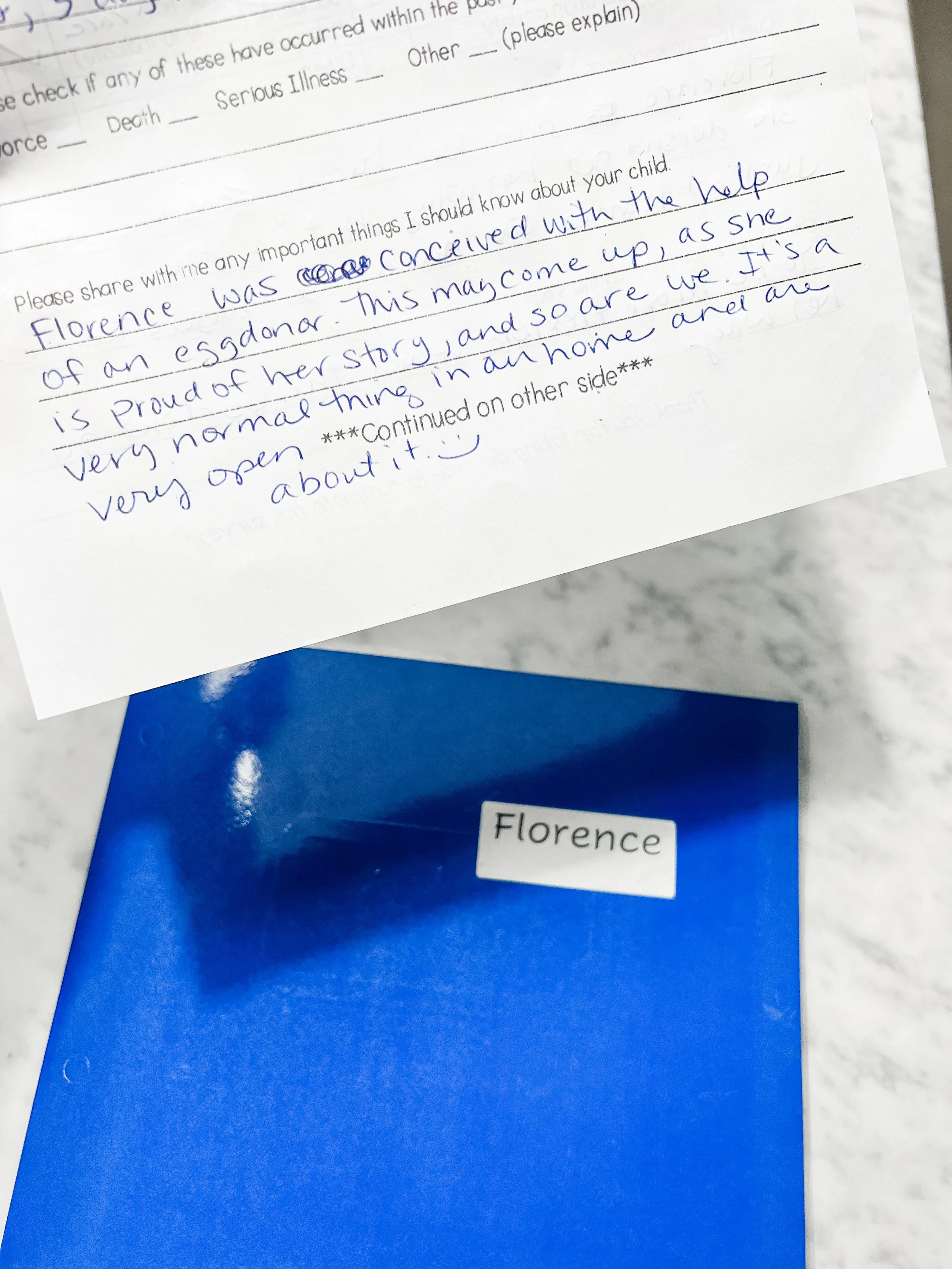This post is in partnership with Donor Egg Bank USA, to help educate and provide support for those considering donor eggs.
Introduction
The journey of conceiving a child via egg donation is a deeply personal process. We all enter this process with unique pieces of ourselves. Whether it be our family belief systems, personality types, religious backgrounds or cultural beliefs, no two people enter this process the same.
The question of who needs to know about the use of donor eggs can be a source of tension and uncertainty for many prospective parents. There isn’t a guide book on how to navigate that, and if there was it would be hard to write because as I mentioned in my first paragraph, we all enter into this process uniquely. With that being said, I have found that finding a balance between privacy and secrecy that feels right to you can be an amazing tool in helping you navigate your family building journey. It’s definitely a common practice for me when I meet new people and am navigating whether or not to share.
First, I think it’s important to address that secrecy and privacy are related concepts, but they differ majorly. Understanding the distinctions between the two is crucial for maintaining healthy boundaries in personal and societal contexts.
key differences between privacy and secrecy:
Privacy: Privacy refers to the right or state of being free from unwanted or intrusive attention, observation, or interference by others. It involves maintaining personal space and autonomy over one’s personal information, activities, and choices. Privacy is often seen as a way to protect personal boundaries and maintain a sense of control over one’s life. If you decide not to share with someone, simply because you don’t want to, that can be an act of maintaining privacy.
Secrecy: Secrecy, on the other hand, involves intentionally concealing information, activities, or intentions from others. It typically implies a deliberate effort to keep something hidden, often due to fear, shame, confidentiality, or personal gain. It is often driven by a need to conceal information or actions that may be seen as embarrassing, controversial, or unethical. If you decide not to share with someone because you are afraid of what they might say or think, then that is likely an act of secrecy.
The Privacy Factor
Privacy refers to the right of the individuals involved to keep certain aspects of their family- building journey confidential — just like if you had conceived without assisted reproduction, you would likely not be sharing the details of how that all went down.
Cringe.
Therefore, this could include not disclosing the use of donor eggs to people who don’t necessarily need to know. Privacy is seen as a way to protect the emotional well-being of everyone involved.
Respecting a person’s privacy choice means acknowledging their right to make decisions about who should be privy to this information. Some families choose to be open about their use of donor eggs from the beginning, while others may opt for a more discreet approach. The decision often depends on individual circumstances, comfort levels and what’s natural for your personality type. If you know me, you know I am very open with the world. This is my personality type; I have always been an open book.
This is not the only way, it’s just my way.
The Secrecy Dilemma
Secrecy, on the other hand, takes the concept of privacy a step further. It involves actively concealing the use of donor eggs from people who do need to know, including the child. While secrecy can be well-intentioned, it can carry serious risks.
Secrecy is usually motivated by fear of judgment, concerns about how the child might feel towards you, or how your family might treat the child. If you are feeling any of these fears, please know they are extremely common. I will admit, when I was first approached with the idea of donor eggs, my initial thought was that I didn’t need to tell anyone, except the child. I thought I was protecting the child, but this was purely driven out of fear and was a way for me to try to protect the stories I was making up in my head. Once I worked through those fears, and understood the impact this could have on my potential children, I was able to find peace and joy in this path to parenthood and live my truth out loud.
Many of the people I thought would judge me, didn’t. The stories I had made up about what people would say or do, never happened. I was quite surprised at the level of support and understanding I was greeted with.
Children have a fundamental right to know their genetic origins. Knowing one’s genetic heritage can be important for medical reasons as well. Access to accurate medical history is crucial for making informed healthcare decisions and managing potential genetic conditions. Secrecy could jeopardize a child’s ability to access vital health information in the future, and it could also severely damage your relationship as their parent.
Secrets imply shame and that is never a feeling I want my children to feel around how they came to be. I also don’t ever want my children to have to bear the burden of having to break the news to people that love them. That’s my job: to open all doors and make it as normal and easy as possible for them as they grow.
Who Needs to Know
Determining who needs to know that a child was conceived via egg donation can vary greatly from one family to another. Below, are some of the key individuals and parties who you might want to consider:
The Child:
This one is a must. It is widely recommended by experts in child psychology and ethics that children conceived through egg, sperm and embryo donation should be informed about their genetic heritage. This knowledge can help them understand their identity, heritage, and potential health risks. I know it can feel scary to have these conversations at first, but there are several books and resources out there to help you, and once you start you will realize it’s really not as hard as you thought. Entering your relationship with your child with trust and transparency can create a foundation for the long road and an unbreakable bond.
Close Family and Friends:
The decision to share this information with close family and friends, such as grandparents, aunts, uncles, and close family friends, is definitely one you should consider. Some families are very open with their circle about it, while others prefer to just share just with immediate family. I used to fear how my family members would respond, but every fear was debunked immediately, and now we have such a beautiful openness.
Medical Professionals:
Healthcare providers, including pediatricians and genetic counselors, need to be informed about the child’s conception through egg donation. This information is essential for providing appropriate medical care, addressing any potential genetic concerns, and offering guidance on health management.
Teachers/ChildCare Professionals:
I make it a point to share with all of my daughter’s teachers. I let them know that our family story is unique, just like every family, and it’s something we are proud of and if he/she ever has questions about it, I’m happy to answer. It’s a teaching moment for me and the way I advocate for my family. I do this so that if my daughter brings it up, they aren’t confused, and can support her. I also think it’s a great idea to bring kids’ books about donor conception or unique family building to these teachers so they can read in class. I really like Love Makes a Family by Sophie Beer.
Here is how I informed Florence’s new Kindergarten teacher this year.
The biggest question you need to ask yourself is, why would I keep it private from this person? Is it because they truly don’t need to know or is it because I’m worried about how they will respond. This is a helpful way to navigate the differences between secrecy and privacy. The barista at Starbucks who comments on how different your child looks from you probably doesn’t need to know (especially if you are in a hurry). However, there may be days that you choose to speak up to people like that so that you can model for your child.
Navigating the Balance
Finding the right balance between privacy and secrecy for your family is something only you know how to do. My best advice is to always think about the child’s perspective. Put yourselves in their shoes, even if they aren’t born yet. What will they need as they grow older to feel like the most empowered, confident version of themselves? Keeping the child’s best interests in mind can help guide decisions about disclosure.
What would you have wanted as a child?
This is no easy task and isn’t one to try to navigate on your own. There are support groups like the one I lead at Infertility Unfiltered dedicated to helping families navigate the path of donor conception. These communities can provide valuable insights and emotional support during your journey.
There are also organizations like Donor Egg Bank USA who have dedicated support resources to help you navigate this process from the very beginning and people available to help. They want you to feel ready and empowered the moment you enter the process.
Check them out on Instagram @donoreggbankusa.
Conclusion
The decision of who needs to know about conceiving a child via egg donation is a deeply personal one, shaped by individual beliefs, circumstances, and ethical considerations. While privacy is a fundamental right, secrecy should be approached with caution, especially when it pertains to concealing a child’s genetic origins. Navigating this complex terrain requires open communication, ethical reflection, and a focus on the well-being of the child. Ultimately, the path you choose should be one that aligns with your values and the best interests of your family.








